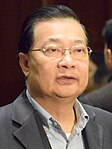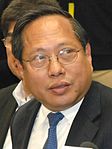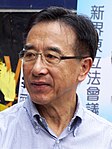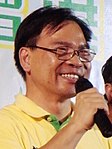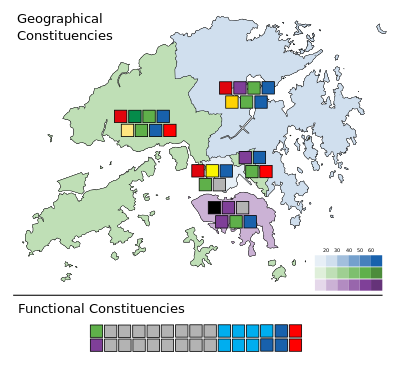| |||||||||||||||||||||||||||||||||||||||||||||||||||||||||||||||||||||||||||||||||||||||||||||||||||||||||||||||||||||||||||||||||||||||||||||||||||||||||
All 60 seats to the Legislative Council 31 seats needed for a majority | |||||||||||||||||||||||||||||||||||||||||||||||||||||||||||||||||||||||||||||||||||||||||||||||||||||||||||||||||||||||||||||||||||||||||||||||||||||||||
|---|---|---|---|---|---|---|---|---|---|---|---|---|---|---|---|---|---|---|---|---|---|---|---|---|---|---|---|---|---|---|---|---|---|---|---|---|---|---|---|---|---|---|---|---|---|---|---|---|---|---|---|---|---|---|---|---|---|---|---|---|---|---|---|---|---|---|---|---|---|---|---|---|---|---|---|---|---|---|---|---|---|---|---|---|---|---|---|---|---|---|---|---|---|---|---|---|---|---|---|---|---|---|---|---|---|---|---|---|---|---|---|---|---|---|---|---|---|---|---|---|---|---|---|---|---|---|---|---|---|---|---|---|---|---|---|---|---|---|---|---|---|---|---|---|---|---|---|---|---|---|---|---|---|
| Opinion polls | |||||||||||||||||||||||||||||||||||||||||||||||||||||||||||||||||||||||||||||||||||||||||||||||||||||||||||||||||||||||||||||||||||||||||||||||||||||||||
| Registered | 3,372,007 (GC) | ||||||||||||||||||||||||||||||||||||||||||||||||||||||||||||||||||||||||||||||||||||||||||||||||||||||||||||||||||||||||||||||||||||||||||||||||||||||||
| Turnout | 1,524,249 (45.20%) | ||||||||||||||||||||||||||||||||||||||||||||||||||||||||||||||||||||||||||||||||||||||||||||||||||||||||||||||||||||||||||||||||||||||||||||||||||||||||
| |||||||||||||||||||||||||||||||||||||||||||||||||||||||||||||||||||||||||||||||||||||||||||||||||||||||||||||||||||||||||||||||||||||||||||||||||||||||||
| |||||||||||||||||||||||||||||||||||||||||||||||||||||||||||||||||||||||||||||||||||||||||||||||||||||||||||||||||||||||||||||||||||||||||||||||||||||||||
The 2008 Hong Kong Legislative Council election was held on 7 September 2008[1] for the 4th Legislative Council since the establishment of the Hong Kong Special Administrative Region. There were 60 seats in the 4th Legislative Council, with 30 members elected by geographical constituencies through direct elections, and 30 members by functional constituencies.[2] Candidates for 14 functional constituency seats were unopposed.
The turnout rate was 45 percent with 1.51 million voters casting the ballots, about 10 percent lower than the previous election in 2004. The Democratic Alliance for the Betterment of Hong Kong (DAB) remained the largest single party in the Legislative Council with 13 seats if including the two members of the Hong Kong Federation of Trade Unions (FTU) while the pro-business Liberal Party suffered a big defeat by losing the two heavyweights, chairman James Tien and vice-chairwoman Selina Chow lost their seats in the New Territories East and the New Territories West. The duo resigned from their party positions and Chow resigned from the Executive Council after the election, which was followed by a great split of the party.[3]
In the backdrop of a deteriorating economy and rising inflation, the pro-grassroots parties scored victories as the new pro-democracy party League of Social Democrats (LSD) had their three candidates elected and the FTU also won in two seats in the geographical constituencies. The pro-democracy flagship party Democratic Party retook the second largest party status despite losing one seat to its ally, the new middle-class oriented Civic Party which took two seats in Hong Kong Island with party leader Audrey Eu stood as the second candidate behind party's new face Tanya Chan.
The share of the pan-democratic parties' vote among voters dropped from 60 percent in 2004 to 57 percent, which translated into a net loss of two seats compared to the last election. The pan-democrats were elected to a total of 23 seats, 19 seats in the directly elected geographical constituencies, and four seats from the functional constituencies. By virtue of having in excess of one-third of the seats in Legislative Council, their ability to veto constitutional changes remained intact. The pan-democrats' veto power was seen as crucial for the electoral arrangements for the 2012 Legislative Council election, which would take place during this session.[4]
Cite error: There are <ref group=n> tags on this page, but the references will not show without a {{reflist|group=n}} template (see the help page).
- ^ Electoral Calendar-international elections world elections
- ^ Electoral Calendar- world elections,US elections,presidential election,world parties
- ^ Cite error: The named reference
doubtwas invoked but never defined (see the help page). - ^ Cite error: The named reference
hamfistwas invoked but never defined (see the help page).
